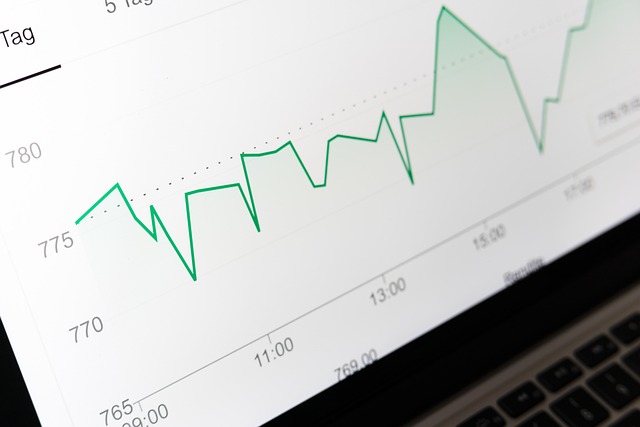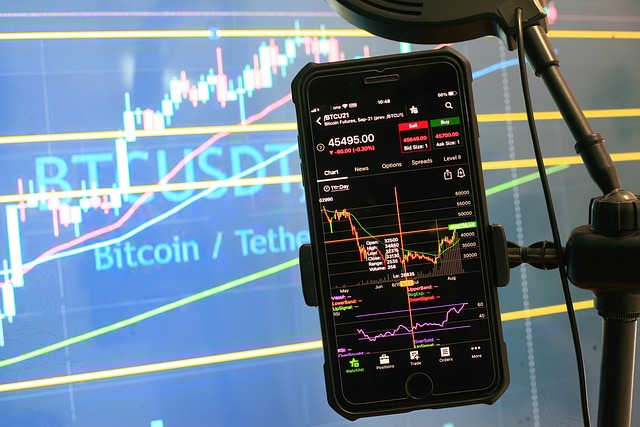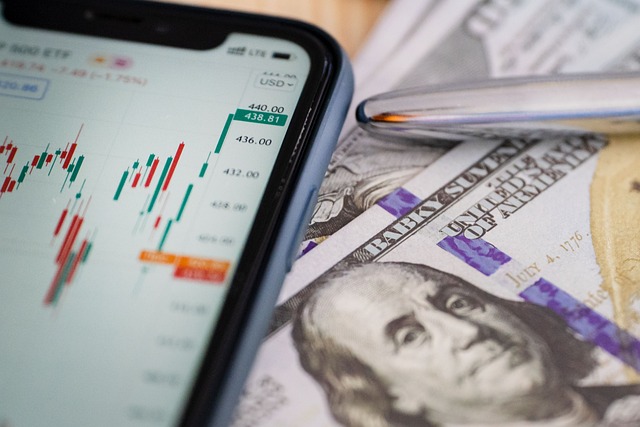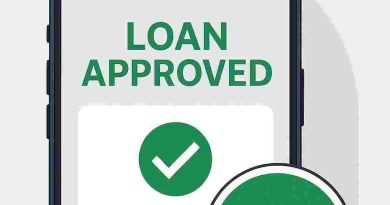Index Funds vs ETFs: Which Is Better for Long-Term Investors?
Compare index funds and ETFs for global long-term investing. Explore pros, cons, strategies, and expert insights for wealth growth in 2025
The 2025 Investor’s Dilemma
In the fast-changing investment landscape of 2025, one debate continues to dominate conversations among both new and seasoned investors—Index Funds vs ETFs.
Both are designed to help you grow wealth over time by mirroring market performance rather than chasing risky stock picks. Yet, they differ in how they’re managed, traded, taxed, and accessed. Choosing the right one for your goals can dramatically shape your long-term financial success.
Whether you’re a global investor starting with your first $100 or managing a multi-currency portfolio, understanding how index funds and ETFs fit your investment strategy is essential.
Let’s break it down simply, humanly, and practically — with real-world insight, expert advice, and the best tools to help you make confident decisions in 2025 and beyond.
What Are Index Funds and ETFs? Explained Simply
What Are Index Funds?
Think of index funds as the “set it and forget it” route to investing. These funds mirror the performance of a specific market index, like the S&P 500, FTSE 100, or MSCI World Index.
When you invest in an index fund, you’re essentially buying tiny portions of hundreds (or thousands) of companies at once.
Why Investors Love Index Funds
Index funds appeal to investors who prefer simplicity and consistency. Prices are calculated just once per day—after the market closes—making them less volatile and ideal for retirement accounts or automated investing systems.
They’re also a favorite of legendary investors like Warren Buffett, who famously recommended low-cost index funds to his heirs as the smartest long-term bet.
Global Appeal
For international investors, global index funds such as the Vanguard Total World Stock Index Fund (VTWSX) or iShares MSCI ACWI Index Fund offer exposure to companies across continents, giving you diversification that mirrors global economic growth.
Example:
An investor in Kenya might use an index fund tracking U.S. or Asian markets to offset local market risk—building long-term stability.
What Are ETFs?

ETFs (Exchange-Traded Funds) are a newer, more flexible cousin of index funds. They also track indexes or asset groups, but unlike index funds, ETFs trade throughout the day—just like stocks.
This means investors can buy or sell ETFs in real-time, benefiting from price changes, market timing, or short-term rebalancing.
The Modern Investor’s Choice
ETFs have grown rapidly due to their accessibility, low fees, and transparency. Many brokers, including Fidelity, Vanguard, and Charles Schwab, now offer commission-free ETF trading.
If you want control over when and how you invest, ETFs give you that flexibility.
Example:
A 28-year-old digital entrepreneur in America might invest in ETFs like the SPDR S&P 500 ETF (SPY) during market dips and sell portions when traveling abroad—managing cash flow and investments simultaneously.
📘 For a detailed technical overview, see Investopedia – Index Funds vs ETFs.
Key Differences Between Index Funds and ETFs
Let’s simplify this with a clear side-by-side view:
| Feature | Index Funds | ETFs (Exchange-Traded Funds) |
|---|---|---|
| Trading Method | Bought/sold once daily at NAV | Traded throughout the day like stocks |
| Flexibility | Less flexible | High flexibility, real-time pricing |
| Minimum Investment | Often $500–$3,000 minimum | Can buy just one share |
| Fees (Expense Ratio) | Slightly higher | Typically lower |
| Tax Efficiency | Moderate | Higher (due to “in-kind” transactions) |
| Best For | Long-term, hands-off investors | Active, cost-conscious, global investors |
| Reinvestment | Automatic dividend reinvestment | May require manual setup |
| Example Providers | Vanguard, Fidelity, Schwab | iShares, SPDR, Invesco |
Pros and Cons: The Deeper Reality
Benefits of Index Funds
- Simplicity: Perfect for beginners or investors who want “set it and forget it.”
- Automatic growth: Dividends and capital gains are reinvested automatically.
- Lower emotions: You’re not tempted to trade frequently.
- Excellent for retirement plans (IRA, 401(k), etc.) since they encourage long-term holding.
Benefits of ETFs
- Lower fees: ETFs often have expense ratios as low as 0.03%.
- Real-time trading: You can react to market changes instantly.
- Global diversification: Easily invest in international markets, commodities, or bonds.
- Tax efficiency: ETFs are structured to minimize capital gains tax.
Drawbacks to Consider
Both come with trade-offs.
- Index funds lack flexibility.
- ETFs can encourage over-trading and emotional decision-making.
- In volatile markets, bid-ask spreads on ETFs may slightly impact your returns.
🧠 Tip: Learn more about diversifying with ETFs using insights from Morningstar – How to Choose Between ETFs and Index Funds.
Global Investment Trends in 2025

According to Forbes’ latest Global Long-Term Investment Report (2025), ETFs continue to outpace traditional mutual funds due to cost efficiency and accessibility through mobile platforms.
Emerging markets are seeing major ETF inflows from millennial investors across Asia, Europe, and Africa.
AI-driven portfolio tools (like those featured in Top 7 AI Tools in 2025 to Save Money & Time in Finance now help investors choose between ETFs and index funds based on real-time market data, personal goals, and risk tolerance.
Choosing the Right One for You
1. If You’re a Beginner
Start with index funds for simplicity.
They’re predictable, require no daily monitoring, and are great for building disciplined habits.
Check our guide: Build Wealth in Your 20s: Global Beginner’s Guide 2025.
2. If You’re Cost-Conscious or Want Flexibility
ETFs are your friend.
They’re ideal if you want to:
- Trade at your convenience,
- Minimize fees,
- Or diversify globally in seconds.
3. If You’re a Long-Term Investor
Both options can coexist.
Many investors hold index funds for stability and ETFs for tactical flexibility, creating a balanced, modern portfolio.
Real-World Example: How Smart Investors Mix Both
In 2025, global investor Lena Moretti from Milan built a hybrid portfolio:
- 70% in Vanguard S&P 500 Index Fund (long-term growth)
- 30% in iShares Global Clean Energy ETF (diversified innovation exposure)
Over three years, her portfolio averaged 9.3% annualized returns, while she enjoyed lower fees and easy access to global markets.
Her takeaway? “You don’t need to choose one over the other — the smartest investors use both strategically.”
Avoiding Scams and Market Traps
Investing globally comes with risk — especially from fake funds or misleading brokers.
Before investing in any ETF or index fund:
- Verify the fund issuer (Vanguard, Fidelity, iShares, etc.)
- Check that it’s listed on major exchanges (NYSE, NASDAQ, LSE).
- Be cautious of “guaranteed high-yield” offers.
Learn essential red flags from Investment Scams to Avoid in 2025: Protection Guide.
Security and Privacy for Online Investors
As you trade online, your personal and financial data are just as valuable as your portfolio.
Always use two-factor authentication, encrypted connections, and trusted platforms.
For more protection strategies, read Step-by-Step Guide to Protect Your Online Privacy in 2025.
Tax Implications Around the World
Taxes vary by country:
- In the U.S., ETFs often have a tax advantage because they avoid frequent capital gains.
- In Europe, index funds may offer better tax-deferred growth in pension wrappers.
- In Asia and Africa, local tax incentives or global funds can affect your returns.
Visit Fidelity – ETFs vs Mutual Funds for detailed tax breakdowns by region.
Comparison Table: ETFs vs Index Funds (2025)
| Criteria | Index Funds | ETFs |
|---|---|---|
| Trading Access | Once per day | Anytime during market hours |
| Expense Ratios | 0.05%–0.25% | 0.03%–0.15% |
| Tax Efficiency | Moderate | High |
| Ideal For | Long-term, hands-off investors | Active, global investors |
| Liquidity | Lower | High |
| Investment Minimum | Often $500–$3,000 | As low as 1 share |
| Dividend Reinvestment | Automatic | May require setup |
| Volatility Management | Stable | Slightly sensitive to market swings |
| Ease of Use | Very easy | Requires some market understanding |
| Examples | Vanguard 500 Index, Fidelity Total Market Index | SPDR S&P 500 ETF, iShares MSCI World ETF |
FAQs: Common Investor Questions
1. Which is safer — Index Funds or ETFs?
Both are safe when issued by reputable providers. ETFs fluctuate more daily, while index funds remain stable for long-term holders.
2. Can I lose money in index funds or ETFs?
Yes, since both track the market. However, over 10–20 years, they historically provide positive average returns of 7–10%.
3. Which is better for beginners?
Index funds are more beginner-friendly, while ETFs offer flexibility for experienced investors.
4. Can I invest globally?
Absolutely. ETFs make it easy to access global markets — from U.S. tech to Asian energy.
5. How do I start investing?
Platforms like Fidelity, Charles Schwab, and Vanguard make it easy to open an account. See Forbes – Long-Term Investing Strategies 2025 for a global overview.
If you’re ready to deepen your knowledge and compare more real-world data, these high-authority resources offer credible insights:
- Investopedia – ETFs vs Index Funds
- Fidelity – ETF vs Mutual Fund Comparison
- Morningstar – ETF vs Index Fund Analysis
- World Bank – Global Financial Inclusion Report
- Forbes – Building Long-Term Wealth Through Smart Investing
These sources align with your journey — providing data, reviews, and up-to-date global analysis to help you build an informed investment strategy.
Your Investing Blueprint for 2025 and Beyond
In 2025, both Index Funds and ETFs are essential building blocks for sustainable wealth.
Index funds offer simplicity and emotional stability, while ETFs provide flexibility and global reach.
There’s no absolute winner — the best choice depends on your goals, habits, and comfort with market fluctuations.
Start small, automate your savings, and let time and compounding do the heavy lifting.
💬
Ready to begin your investing journey?
Compare ETFs and index funds today, explore guides like Build Wealth in Your 20s: Global Beginner’s Guide 2025, and share your own experience in the comments below — your financial freedom starts now.




Thanks for sharing. I read many of your blog posts, cool, your blog is very good.